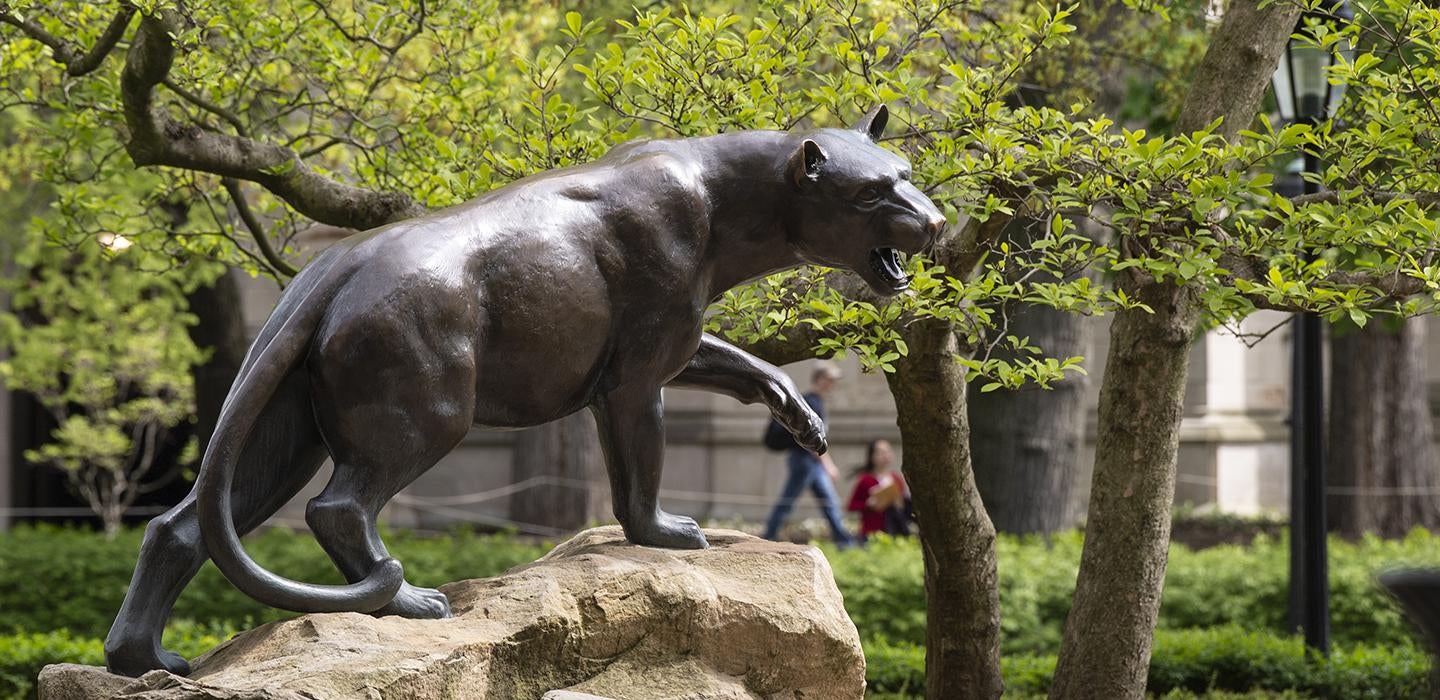
Subscribe to Pittwire Today
Get the most interesting and important stories from the University of Pittsburgh.This year’s Community Engaged Scholarship Forum (CESF), themed “Progress Through Partnerships: Adapting and Innovating,” highlighted and celebrated partnerships between the University and community organizations working to improve life throughout the Pittsburgh area.
The virtual forum, hosted March 1 by the Office of Engagement and Community Affairs, the Office of the Provost and the Mascaro Center for Sustainable Innovation, also housed Pitt’s annual Senate Plenary. The CESF featured 13 sessions, virtual lounges and virtual networking spaces and announced the winners of the Partnerships of Distinction Awards.
Chancellor Patrick Gallagher opened the annual forum while Provost and Senior Vice Chancellor Ann E. Cudd gave closing remarks.
Gallagher reflected on the importance of community-engaged scholarship, which lies at the core of Pitt’s mission and purpose.
“Our academic mission, including research and teaching, leads us naturally to looking at the most compelling questions and topics, and a community scale defines many of the most important issues we face today,” Gallagher said.
Community engagement also presents unique opportunities for innovative scholarship that benefits Pitt’s surrounding communities and beyond.
“This is now a vibrant frontier for cutting edge scholarship and learning,” Gallagher said. “Simply put, the University that learns how to master how to do community-engaged work well will be a leader.”
Lynnette Young Overby, a professor of theater and faculty scholar at the Center for the Study of Diversity at the University of Delaware, presented the keynote for the Senate Plenary titled, “Engaged Scholarship through the Arts: A Pathway to Social and Cultural Equity.”
During the keynote, Overby explained that she views engagement through four frames: public engaged scholarship, which focuses on public issues; community-engaged scholarship, which focuses on community issues; civically engaged scholarship, which advances civic life; and critically engaged scholarship, which challenges injustice and racism.
Engaged scholarship through the arts falls into the areas of public and critically engaged scholarship, Overby said.
“Art can be a powerful tool to promote greater understanding, and to really help people get to the heart of a social issue,” Overby said.
During the Q&A segment, Overby encouraged participants interested in getting started with community-engaged scholarship to first focus on their disciplines and areas of expertise, then look around.
“Now look outside, let's see: What are some of the issues in society, in my community that my discipline might be able to connect with because we’re working in collaboration with community partners to find solutions?” Overby said.
Following the keynote, project leaders from the 2021 Engaged Scholarship Summer Design Intensive participated in a roundtable discussion of their projects, which ranged from technology for the social good, to community-centered immunization efforts, to building a community documentation laboratory. These projects were incubated during the summer of 2021 and are currently being implemented.
During the Senate Plenary, Associate Professor of Political Science and Senate Vice President Kris Kanthak noted Pitt’s unique status as an anchor institution that plays an integral role in its surrounding communities.
“Our impact in Western Pennsylvania and indeed the world is consequential,” Kanthak said. “And so being intentional about our effect is vital to our ability to coexist ethically and responsibly with our neighbors.”
Recordings of the forum sessions will be available for a limited time.
Partnerships of Distinction Awards
Lina Dostilio, the vice chancellor of engagement and community affairs, presented Partnerships of Distinction Awards, which serve to celebrate organizations that have formed powerful partnerships with the University and helped better the lives of people living in Pitt’s surrounding communities.
“Partnerships are different than collaborations,” Dostilio said. “Partnerships is where something magical can happen. It really does help us to bring all the resources and assets and knowledge from every possible corner to bear on the work in front of us. Creating an award to honor partnerships is fitting at the University of Pittsburgh.”
Here are this year’s winners:
Allegheny County Policing Project
The aim of this project is to bring more transparency to the police accountability process at the local level. Their website allows users to learn about municipal police departments, look up information in police contracts and become more familiar with the ways these contracts govern police accountability. Read more about it in Pittwire.
The Pittsburgh Study K-3rd Grade 3Rs: Reading, Racial Equity, Relationships
This study is developing an intervention centered on Black children to enhance kindergarten through third grade literacy. The group's research focuses on the principles and processes followed to develop authentic community-university partnerships and addresses four specific aspects of the literacy ecosystem: classroom, school leadership, family and community.
Bhutanese Community Association of Pittsburgh Youth Art Program
This program directly and indirectly combats social issues like racism and inequality. During the pandemic, many students received irregular and disrupted education. This was particularly true for groups like refugees and immigrants who already may have lacked access to music and art classes. The Bhutanese Community Association of Pittsburgh Youth Art Program fills in these gaps and provides additional enrichment to an underserved demographic.
— Donovan Harrell and Nichole Faina


